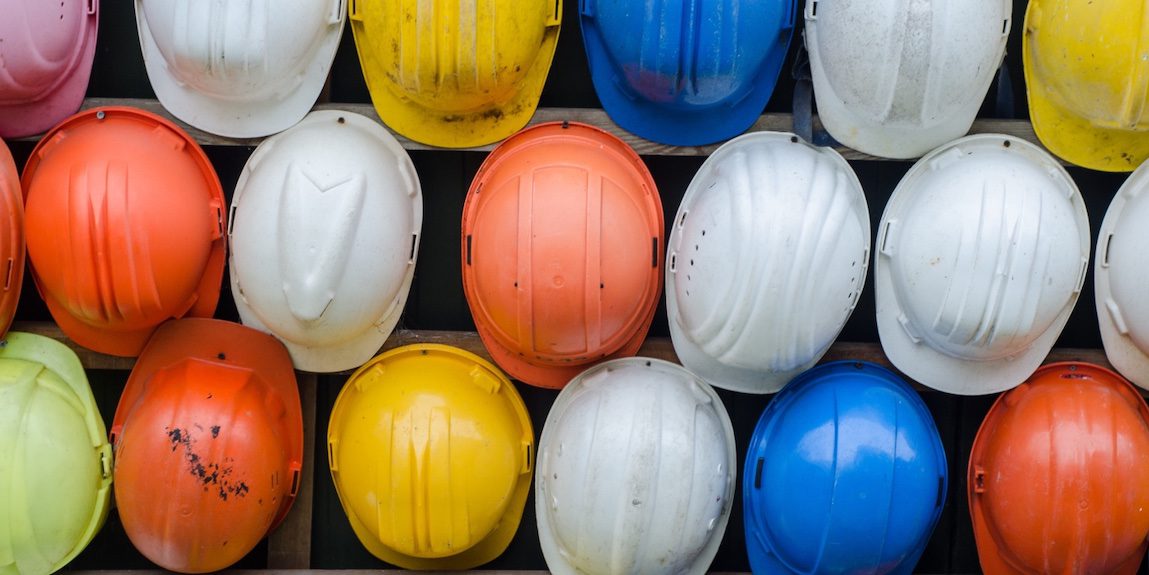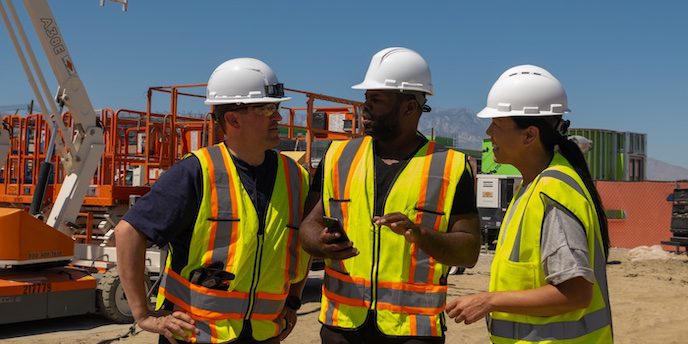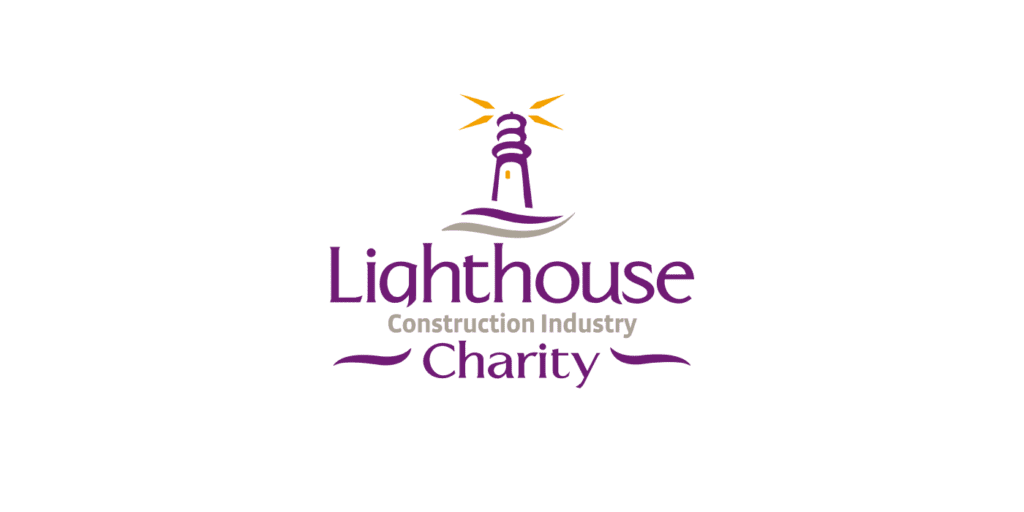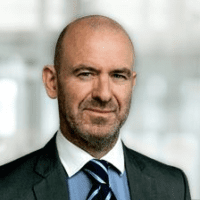

Construction is vital to the everyday lives of many. Our society relies on the construction industry every single day, from building roads, to schools, offices, hospitals. In fact, you name it, building in some form or other is probably there. It’s an industry with impressive, powerful, and increasingly smart tools and machines.
But there’s an element that deserves more attention: the human beings who run job-sites, who operate and maintain the machines, and who make sure processes run smooth.
Construction sites can be a tough environment to be in. It’s loud, dirty and busy, and to avoid physical harm to workers an increasing range of measures is put in place to avoid accidents. While there’s always room for for improvement, organizations such as IPAF do a tremendous job at making construction work environments safer and driving fatalities down.
A lot of people care for and talk about the physical safety of construction personnel and that is a good thing. Ensuring people don’t get physically hurt is a prerequisite in construction today. But when we turn towards mental health and well-being, we face a much bigger stigma in a typically male-dominated, competitive industry.
Stress, depression, anxiety account for 27% of all work related illness in construction and the number of unreported cases is probably not insignificant either. Another study by CIPR states that more than 80% of construction workers have experienced a moderate to severe mental health issue. One of the most uncomfortable truths about the construction sectors is that it ranks among the highest when it comes to suicide rates.
A study from 2021 reveals a number of reasons why employees in the construction sector are more likely to experience mental health issues than other sectors. One aspect is the hard physical labor in itself and the toll that for example chronic pain takes on mental well-being. The sector is struggling with workforce gaps so working overtime and tight deadlines are more a rule than an exception.

Time spent away from home due to different locations of jobsites is another factor that contributes to stress and overwhelm. Lastly, and arguably the most important, is a work culture primed by traditional male stereotypes that still prevails in construction, where women make up only about 10% of the workforce. Toughness is valued while asking for help is often perceived as personal weakness and a source for judgement.
There will always be voices that argue these challenge simply “come with the job”, but putting human well-being and lives at risk cannot be the norm for the modern construction industry.
When the reasons are all on the table, where do we then start solving these problems and who is the ‘we’ in question? Preventive measures and immediate help fall into three interlinked categories:
The mission of the Lighthouse Charity, a charity that supports construction workers and their families in the UK and Ireland address this blind spot. The organization provides emotional, physical and financial wellbeing support, ensuring that no construction worker or their family is ever alone in a crisis.
The organization provides immediate help via a 24/7 Construction Industry Helpline and text support service and runs campaigns to increase awareness and knowledge about developing a better wellbeing culture in construction to prevent incidents. But it can’t be left to organizations like the Lighthouse Charity alone to improve mental health in construction.
Bill Hill, CEO of the Lighthouse Charity agrees, collaboration is key and we all have a moral responsibility to ensure that our workforce gets home safely each day. It takes the effort of many to become more aware of colleagues, family members and friends who might be in a tough situation, to listen to concerns and offer help.

That’s why Trackunit is proud to announce its partnership with the Lighthouse Charity. The collaboration gives Trackunit employees the opportunity to become mental first aiders. It’s a voluntary training offered to everyone working at Trackunit where participants learn practical skills to spot the triggers and signs of mental health issues. They become a first point of contact to step in, reassure and support a person in distress.
I couldn’t agree more with Soeren Brogaard, CEO at Trackunit, who said in his keynote from Trackunit Next, that creating a highly empowered, engaged and inclusive organization is a top priority at Trackunit. The partnership with the Lighthouse Charity is a great initiative to become more aware of colleagues and people around us who might be struggling.
Living in a digital world brings a ton of opportunities, but also challenges and risks. Constant availability requires us to put conscious effort into staying mindful together so we can grow together. Learning to recognize the small signs that can show a person is on the edge of being stressed and overwhelmed is an invaluable skill in today’s fast-paced world. To a lot of people, it also requires some courage to step in and ask the right questions, taking the time to listen. The work with the Lighthouse Charity trains us in doing just that.
It’s our purpose to help construction eliminate downtime. Providing the data, insights, and a world-class platform that connect the industry is Trackunit’s contribution to solve downtime. And to do so we need to build honest, compassionate connections between humans as well within our own organization and beyond.
Learn more about the Lighthouse Charity and get access to resources and the confidential helpline here.
